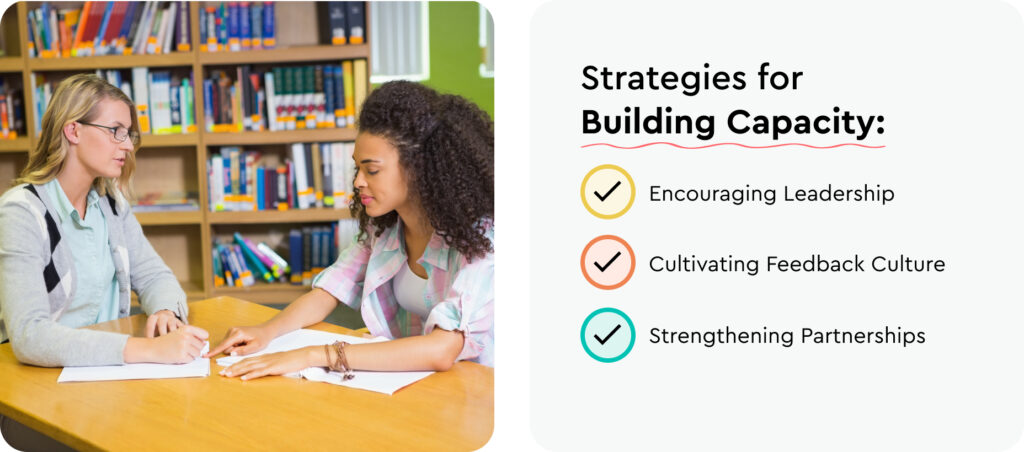During ReAction Virtual, Elizabeth Harner, Director of Adult Learning and Professional Development at Southwest Metro Intermediate District, shared her expertise on fostering a leadership approach that enhances capacity in educational programs, from K-12 to adult learning. Harner outlined key strategies to foster collaboration, a feedback culture, and partnership to address challenges faced by educators in the wake of COVID-19. Let’s delve into the key points of her presentation.
Assessing the Current Landscape
Harner began by acknowledging the impact of COVID-19 on education, highlighting statistics revealing disengagement among students, decreased attendance rates, and heightened behavioral issues: 68% of students feel disengaged, attendance rates are down, and behavior issues are on the rise. Additionally, 27% of educators report insufficient support from administrators, leading to high levels of burnout and low teacher retention.

Understanding Leadership Frames
Drawing from Linda Lambert’s research, Harner discussed four frames of leadership, ranging from low participation and skills to high participation and skillfulness. She underscored the importance of transitioning towards a high participation and high skillfulness frame, where leadership capacity is maximized through collaboration and shared responsibility.
Strategies for Building Capacity
- Encouraging Leadership: Harner emphasized the significance of empowering others to step up and contribute, fostering a culture of shared leadership.
- Cultivating Feedback Culture: She highlighted the importance of feedback, distinguishing between evaluative feedback, coaching, and appreciation. Creating opportunities for constructive feedback helps in nurturing professional growth.
- Strengthening Partnerships: Through specific examples, Harner illustrated how partnerships with community organizations can enhance student engagement and foster a sense of belonging.

Effective Coaching Techniques
Harner stressed the importance of coaching as a tool for capacity-building, advocating for meditative questioning, data-driven insights, and positive reinforcement to guide educators towards self-directed solutions.
Promoting Collaboration
Harner emphasized purpose-driven collaboration, where educators align on goals, priorities, and patterns of practice. By fostering meaningful partnerships and engagement with the community, educational leaders can enrich learning experiences and support student success.
Conclusion
Elizabeth Harner’s session on Open Door Leadership offers valuable insights for educational leaders aiming to build capacity in their programs. By framing our leadership approach, fostering strong relationships, encouraging collaboration, creating a culture of feedback, and building partnerships, educators can navigate challenges effectively and create an environment conducive to continuous growth and development. As Simon Sinek wisely says, “Let us all be the leaders we wish we had.”










